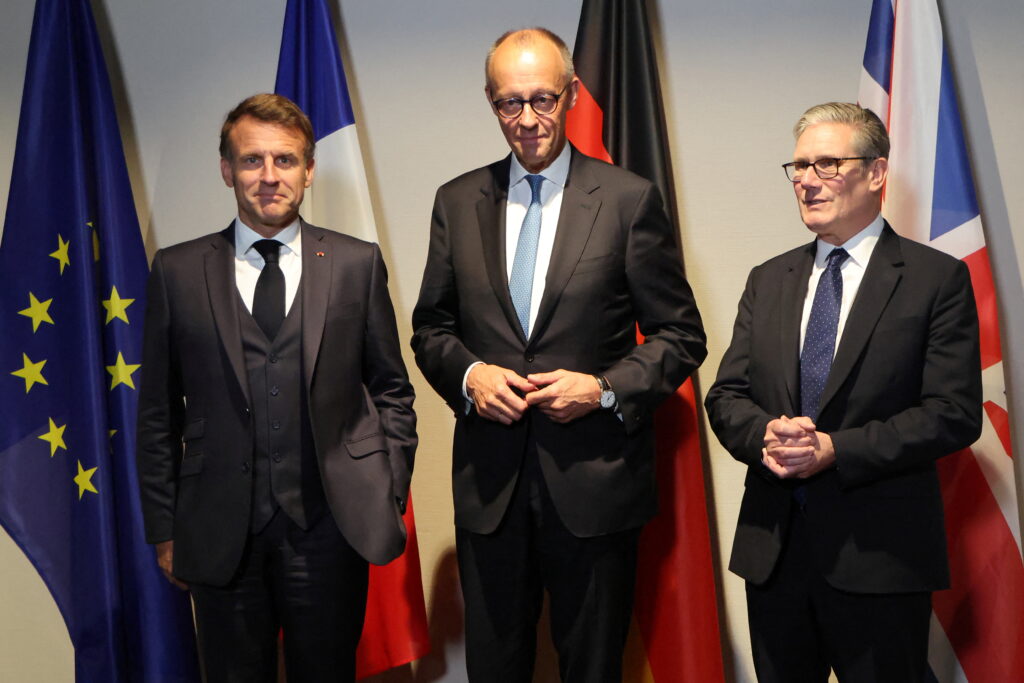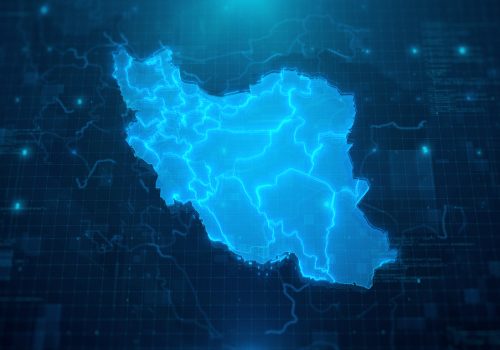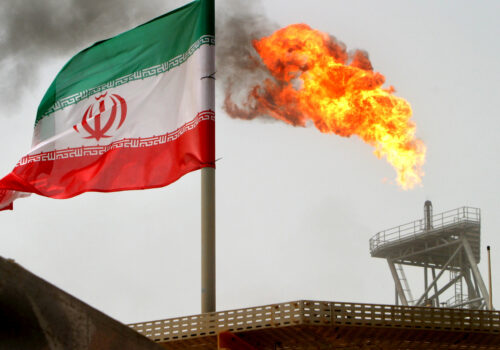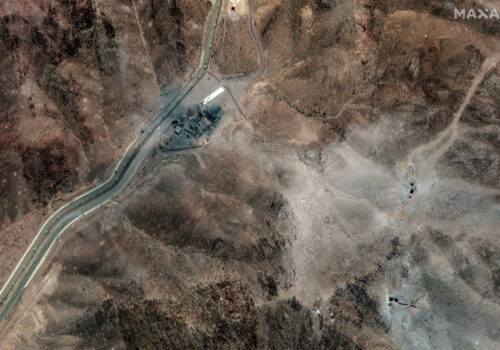JUST IN
Will it be a snap? Today, France, Germany, and the United Kingdom announced that they’ve started the process of triggering “snapback” sanctions on Iran over its nuclear program. In a joint statement, the foreign ministers from the three European nations, known as the E3, wrote that United Nations sanctions on Iran that had been suspended under the 2015 Joint Comprehensive Plan of Action (JCPOA) will go back into effect after thirty days over what they called Tehran’s “clear and deliberate” noncompliance with the nuclear agreement. This European pressure comes as US-Iran nuclear discussions have been on pause for more than two months after a twelve-day war between Iran and Israel, during which the United States bombed three of Iran’s nuclear facilities. With the United States having pulled out of the JCPOA in 2018, how much leverage does the E3 have over Iran? And how is Tehran likely to react to the threat of renewed sanctions? We asked our experts, triggering their responses below.
TODAY’S EXPERT REACTION BROUGHT TO YOU BY
- Alan Pino: Nonresident senior fellow with the Scowcroft Middle East Security Initiative at the Atlantic Council’s Middle East programs and former US national intelligence officer for the Near East
- Kimberly Donovan: (@KDonovan_AC): Director of the Economic Statecraft Initiative within the Atlantic Council’s GeoEconomics Center and former White House and Treasury official
- Rob Macaire: Member of the Atlantic Council’s Iran Strategy Project advisory committee and former British ambassador to Iran
Why now?
- “The timing of this showdown is entirely driven by the deadlines mandated back in 2015,” when the JCPOA was signed, Rob tells us. The E3, he says, “are in a ‘use it or lose it’ position, and this is the last chance to pull the trigger.”
- Kim notes that the JCPOA expires in October, after which point the UN Security Council “will consider the Iran nuclear issue closed.” Another reason for urgency, she adds, is that Russia assumes the agenda-setting presidency of the Security Council in October.
- The aim of the E3’s threats of renewed sanctions, says Alan, is to pressure Iran “to resume negotiations with the United States designed to place restrictions on its nuclear program and ability to acquire a nuclear weapon.”
- Kim notes that Iran has not complied with the nuclear deal for years. “While it may be too little too late,” she says, triggering the snapback mechanism “is a welcome move by the Europeans” since “the JCPOA is the only existing framework to restrict and monitor Iran’s nuclear ambitions.”
Sign up to receive rapid insight in your inbox from Atlantic Council experts on global events as they unfold.
What’s next for the E3?
- While the E3 is attempting to pressure Iran into re-entering talks with Washington, Rob says, the Europeans “will want to persuade the United States to approach any such negotiations realistically and with consistent positions that hold out the best chance of success.”
- Rob expects to see “a lot of Iranian, Russian, and Chinese rhetoric about European hypocrisy” for using its sanctions leverage, as well as “attempts to undermine the legal standing of the measure.” But it is “a fairly open-and-shut legal case” in the E3’s favor, he adds.
How will Iran respond?
- Rob expects Iran to try “to show that this results in a worse nonproliferation outcome for the West.” Tehran could do this, he adds, by “making its noncooperation with the International Atomic Energy Agency more formal or permanent.”
- Iran could also retaliate by “making good on its threat to walk out of the Nuclear Non-proliferation Treaty,” Rob says. However, such a move is “unlikely,” he says, because it would further tilt world opinion against Iran.
- These measures could “intensify the debate between hardliners and reformers in Iran,” Alan says, over whether to adopt a more conciliatory approach to the West in the wake of the twelve-day war. Right now, “the hard-liners still appear to have the upper hand.”
- However, Alan points out that Iranian Supreme Leader Ali Khamenei “has shown flexibility in the past on Iran’s stance toward the nuclear issue when he perceived that regime survival might be threatened.” The snapback threat, he says, may convince Khamenei to “at least let reformers explore options on the nuclear issue and regional moderation to alleviate the growing threats Iran is facing.”
- “There is still the extremely thin chance that Iran and the JCPOA parties could have a last-minute breakthrough in the thirty-day period that starts now,” notes Rob. But the United States and E3 shouldn’t hold their breath: “The one thing Iran hates to do is publicly back down under pressure.”
Further reading
Thu, Oct 26, 2023
Global Sanctions Dashboard: How Iran evades sanctions and finances terrorist organizations like Hamas
Econographics By
Iran’s financing of Hamas and other terrorist organizations; UAE’s role in facilitating Iran and Russia sanctions evasion; lifting of UN sanctions on Iran's ballistic missile program.
Tue, Jul 1, 2025
The US must enforce sanctions to prevent Iran from rebuilding its nuclear program
New Atlanticist By Kimberly Donovan
To ensure that Tehran cannot get its hands on the financial resources it would need to rebuild its nuclear program, Iran sanctions enforcement should start with China.
Thu, Jun 26, 2025
What really happened to Fordow? Three possible futures for Iran’s nuclear program after US strikes.
New Atlanticist By Amir Asmar
The condition of Fordow will have a direct impact on the likelihood of Iran giving up its nuclear program versus resuming its pursuit of nuclear weapons.
Image: France's President Emmanuel Macron, Germany?s Chancellor Friedrich Merz and Britain's Prime Minister Keir Starmer pose as they meet on the sidelines of the two-day NATO's Heads of State and Government summit, in The Hague, Netherlands June 24, 2025. Ludovic Marin/Pool via REUTERS



